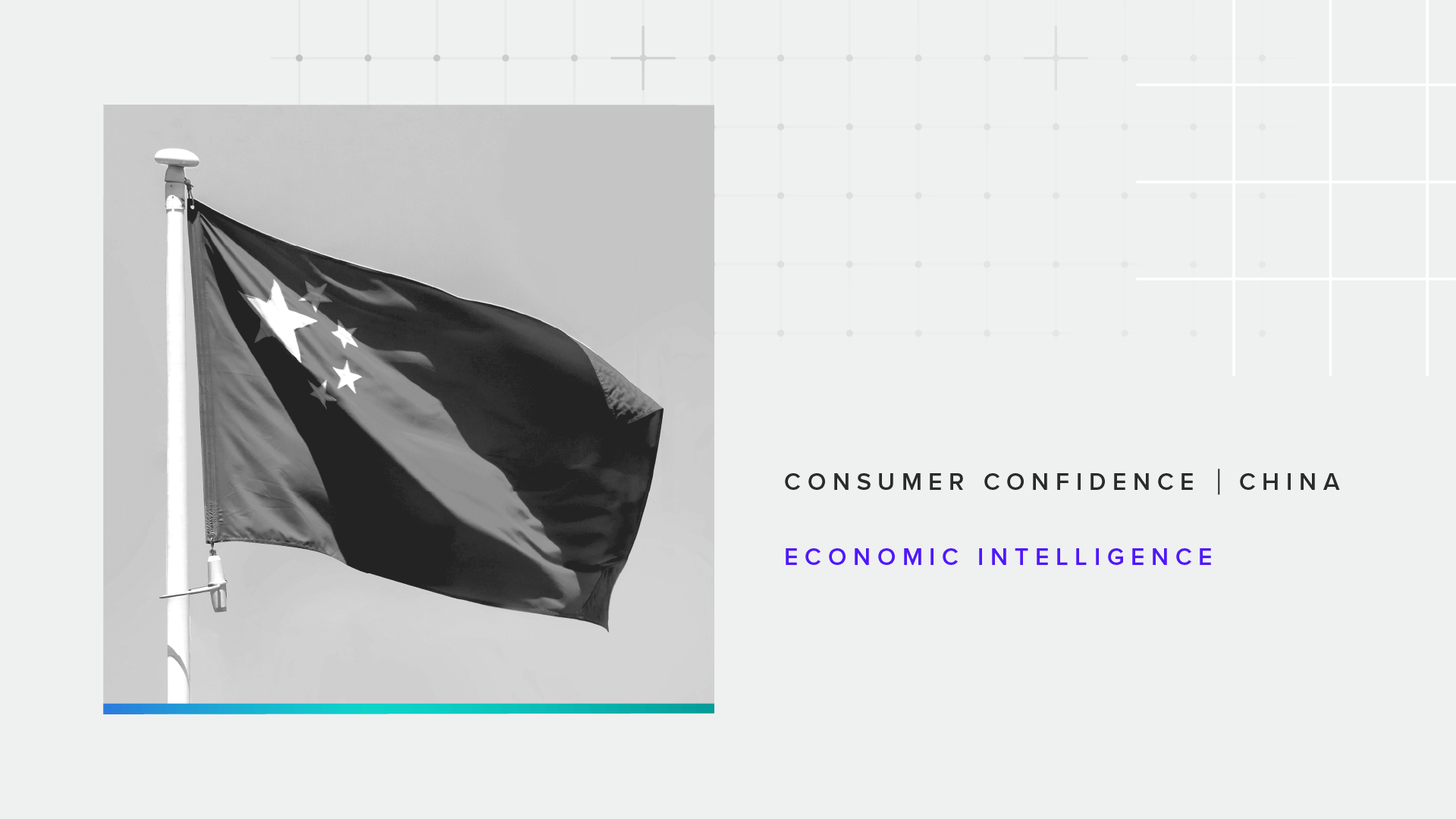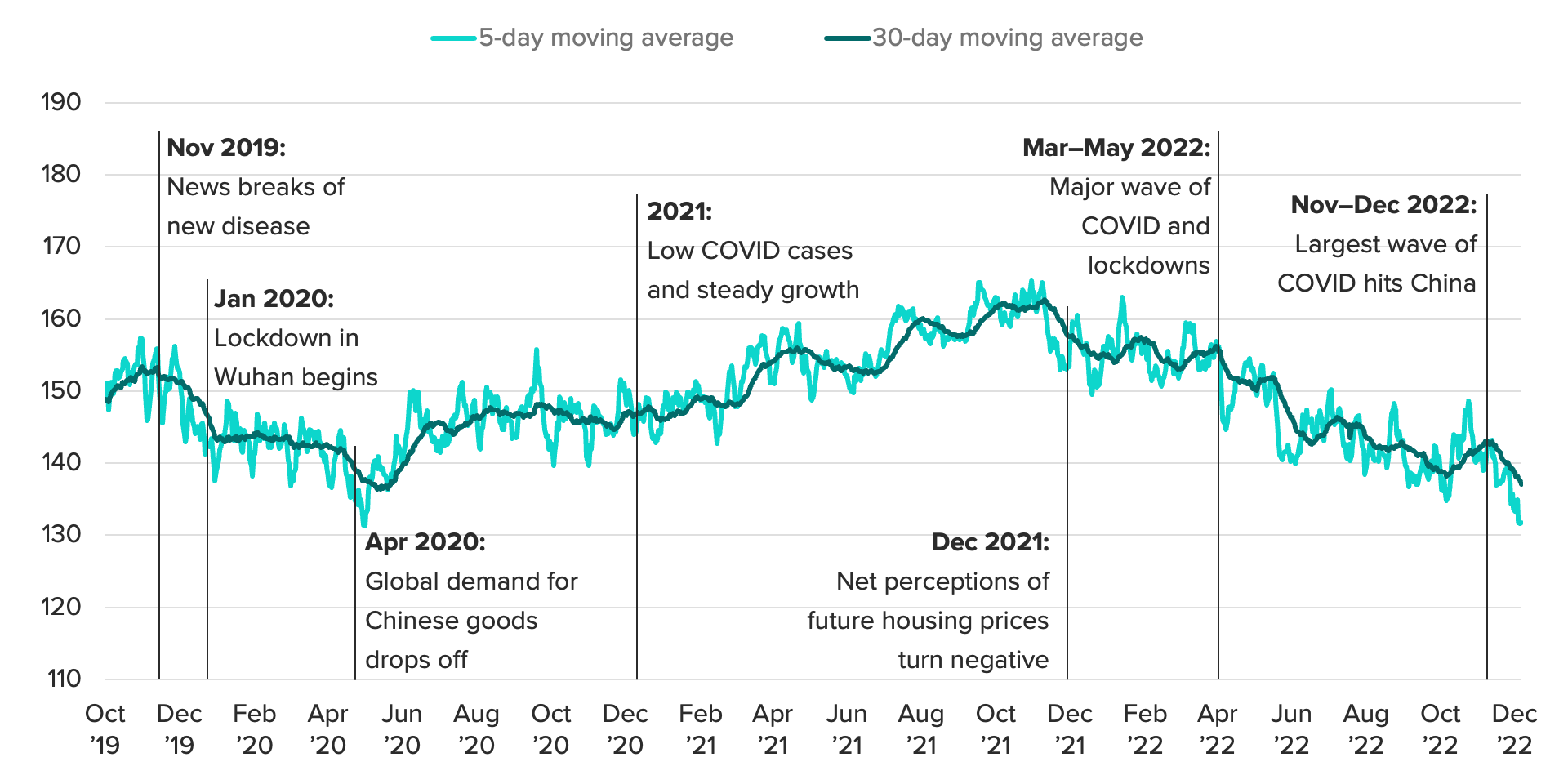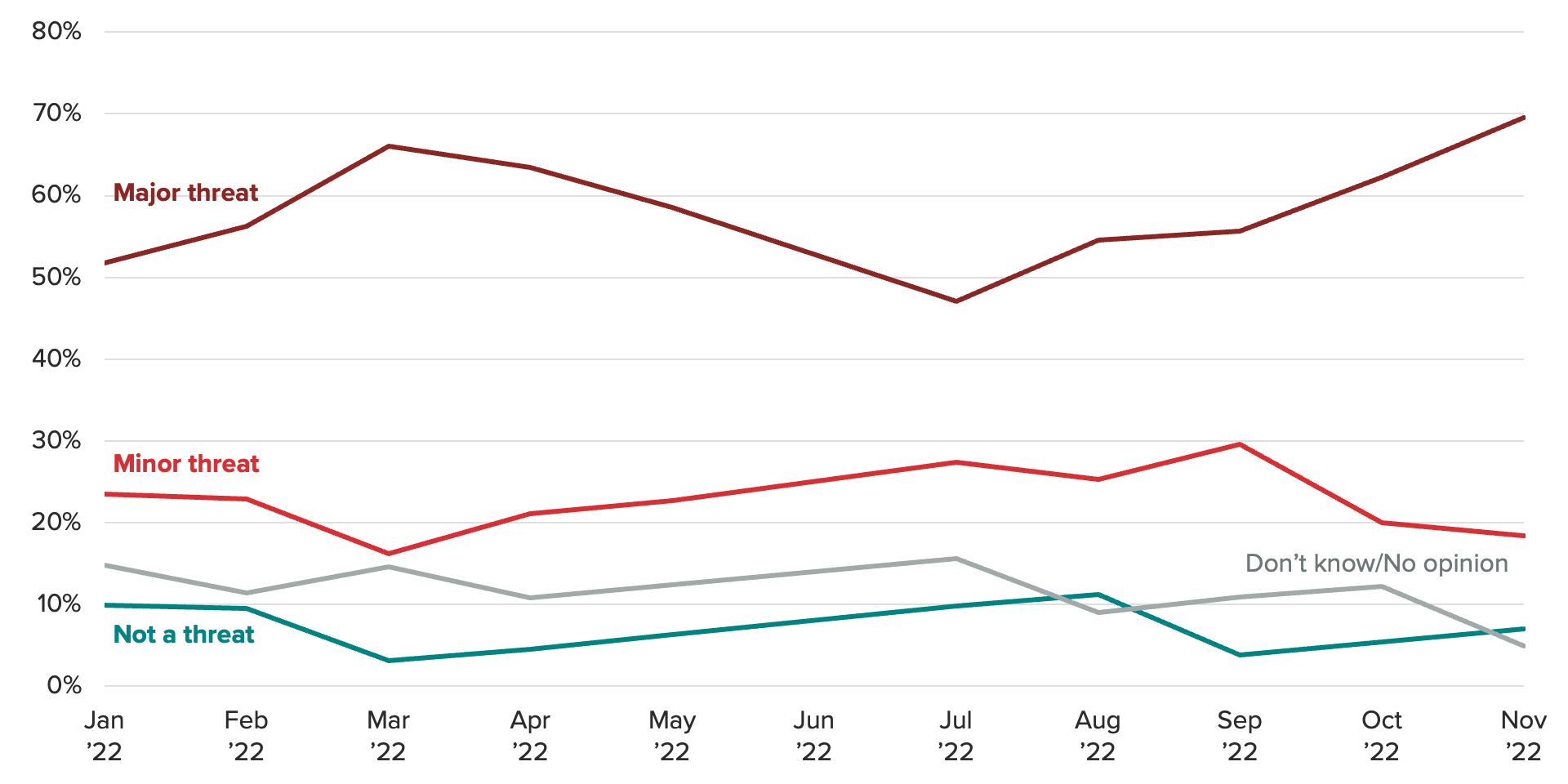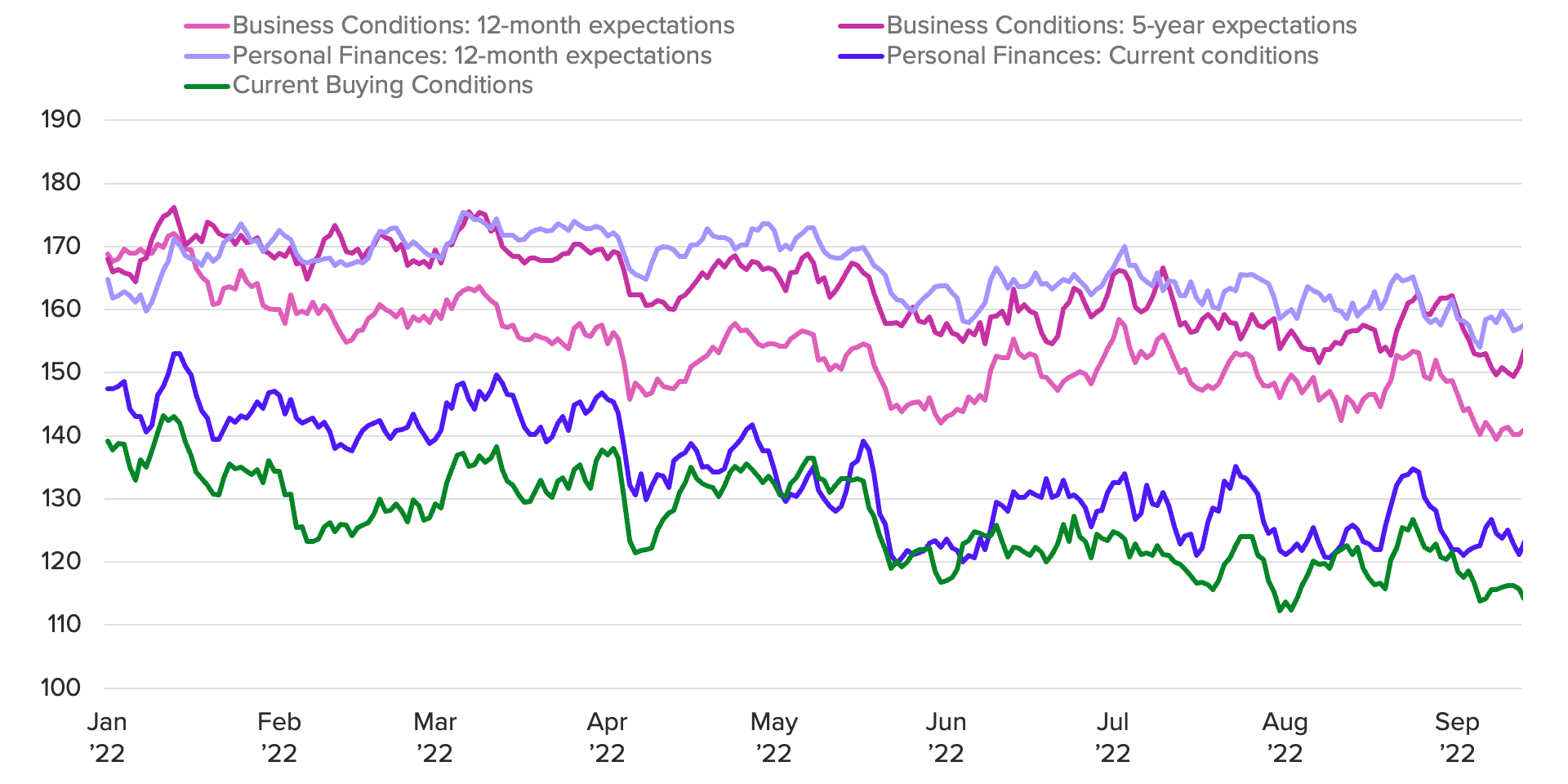Consumer Confidence in China Nears Series Lows as Beijing Starts to Unwind COVID-Zero Policies

Key Takeaways
The Morning Consult China Index of Consumer Sentiment has fallen considerably in 2022 as waves of lockdowns and real estate market worries rattled consumer confidence.
Beijing is finally moving to loosen its COVID-zero policies in the wake of widespread protests, potentially unlocking a Chinese economy that has seen demand depressed by severe restrictions.
An end to COVID-zero policies would remove a major obstacle to growth and a bottleneck to supply chains, but it presents serious near-term risks to both the Chinese and global economies.
This memo relies on data from Morning Consult’s December Global Consumer Confidence report. Morning Consult Economic Intelligence subscribers can access the full report here.
Consumer sentiment continues to fall in China after a recent wave of COVID-19 cases and ensuing restrictive measures were met with widespread protests. The government of President Xi Jinping is now moving to loosen many of the COVID-zero restrictions that have been in place since the start of the pandemic and weighed heavily on consumer confidence in 2022.
Multiple waves of lockdowns and real estate market worries rattled consumer confidence over the course of 2022, with the November average for the Morning Consult China Index of Consumer Sentiment 11.5% below where it started the year in January. The five-day moving average is now just off the series lows recorded in May 2020.
Consumer Sentiment in China Nears 2020 Lows

While much of the world has returned to relative normalcy in the wake of the COVID-19 pandemic, Beijing has maintained its COVID-zero approach, in which any new cases are met with quarantines or even major lockdowns. While this policy was initially effective at suppressing cases, hospitalizations and deaths, Chinese adults have become increasingly wary of the considerable restrictions placed on their movements and economic activity. This is reflected in the data: The China ICS trended higher throughout the second half of 2020 and 2021 before falling into a steep downtrend in 2022.
The omicron variant of the COVID-19 virus also made COVID-zero policies less effective. Omicron is more easily transmitted than previous variants, which made it more difficult for authorities to manage. China has seen two major waves of COVID-19 this year: One peaked in April and another is currently underway. Both waves pushed concerns of COVID-19 higher. As of November, the share of Chinese adults who view COVID-19 as a major threat has risen to roughly 70%.
Rising Share of Chinese Adults View COVID-19 as a Major Threat

Real estate market concerns have also weighed on confidence over the past 12 months, something Morning Consult has highlighted in previous reports. With much of the average Chinese households’ savings tied up in property, a downturn in the value of real estate prices will weigh heavily on household finances. With their homes worth less money, Chinese adults will feel less wealthy and are thus likely to pull back on spending.
Over the course of 2022, the largest decrease in the ICS was experienced in the personal finances: current conditions component of the index, a troubling sign for a Chinese economy that has struggled to maintain consumer spending and domestic demand.
Consumers Have Grown Most Pessimistic About Their Current Personal Finances

Real estate concerns have compounded the impact of the COVID-zero approach in suppressing domestic demand in China, with real GDP growth poised to slow considerably. Mounting protests now appear to have forced Xi’s hand, with Beijing now moving to loosen its COVID-zero policies and providing local officials with guidelines to minimize the impact of less restrictive rules.
While the end to COVID-zero policies will ultimately remove an obstacle to economic activity, the move also presents serious health and economic risks in the near term. Should an unchecked wave of COVID-19 hit, it could create major headwinds to Chinese and global growth. However, if the Chinese government is able to effectively implement this change in policy, it will be a boon for the Chinese economy. And to the extent that China’s reopening would increase the supply of goods across the world, this development may also help to ease global inflationary pressures.
Jesse Wheeler previously worked at Morning Consult as a senior economist.